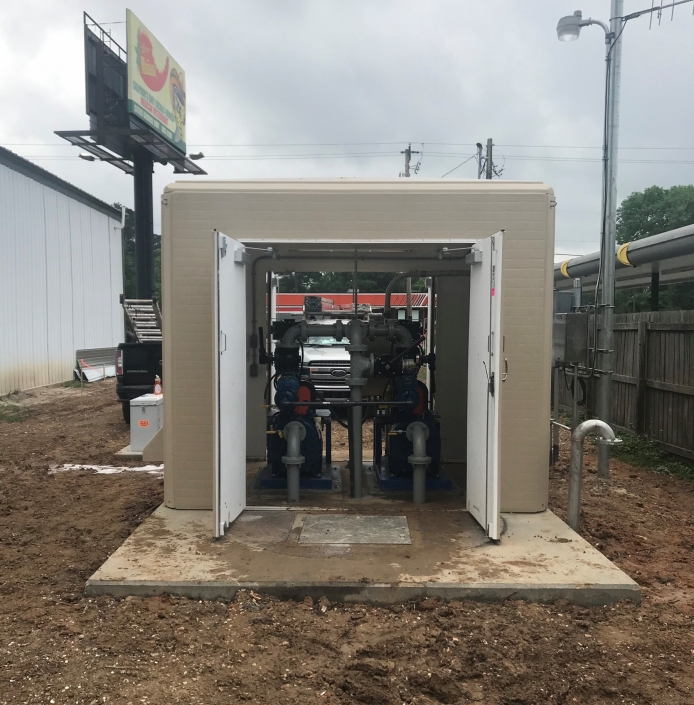Tough Fiberglass SheltersShelter Works News
What do we mean when we say that a Shelter Works fiberglass field equipment shelter won’t rust, rot, corrode, or decay?
 Corrosion is a term used when referring to the degradation of metals over time. When it comes to durability, corrosion breaks down the useful properties of metals and compromises the structural strength. Even the more corrosion resistant metals have their limitations depending on the application.
Corrosion is a term used when referring to the degradation of metals over time. When it comes to durability, corrosion breaks down the useful properties of metals and compromises the structural strength. Even the more corrosion resistant metals have their limitations depending on the application.
The most common form of corrosion is general or uniform corrosion. It’s caused by chemical and electrochemical reactions and affects the entire surface of the metal. Commonly referred to as rust, if left alone it will cause the metal to fail. It is a known and predictable issue that can be taken care of with routine maintenance.
Another type of metal corrosion is called localized. It occurs in portions of the metal and will have less of a uniform appearance. One example is filiform corrosion which occurs when water gets under protective coatings, such as paint. Other types of localized corrosion are pitting, the creation of small holes in the metal’s protective coating, and crevice, which can exist in static areas such as those found between mounting materials, the wall, and the secured equipment. Both can result in galvanic corrosion, localized corrosion which occurs when two dissimilar metals are allowed to physically touch each other.
Corrosion is preventable with the use of coatings, paints, and other inhibitors. These solutions require regular maintenance and can increase the overall lifetime cost of the metal.
The only metal used in a Shelter Works assembly is the stainless steel screws that hold the walls and roof to each other. These screws can be upgraded to 316 stainless steel for the most aggressively corrosive environments.
Wood rot is a type of decay caused by moisture and fungi that deteriorate the timber used in stick-built construction. The two most common types of decay found in wood construction are brown rot and white rot, each the result of a different type of fungi and can be easily identified by their appearance. Once discovered rot usually requires replacement of the affected wood. The best prevention for rot is routine maintenance and repainting of areas that exhibit cracking and peeling.
Shelter Works Fiberglass Reinforced Polymer (FRP) buildings only use wood that is encapsulated within the protective coating of the FRP guaranteeing that the wood will not rot for the duration of the building’s 25 Year Warranty.
Corrosive fumes and microorganisms cannot find their way through Shelter Works’ fiberglass shelters because we utilize the same gel coats used to produce today’s marine craft, transportation equipment, and aircraft. Gel coat is not a paint applied after production. It is molecularly bonded to the fiberglass during the manufacturing process becoming a part of the composite. It will not crack or peel like paint. The gel coat outer layer protects the shelter from moisture, chemicals, and UV damage that can cause the corrosion and rot seen in metal and wood shelters. Gel coat is one of the reasons we can offer an industry-leading 25-year warranty.
The unique characteristics of Shelter Works’ fiberglass field equipment shelters make them naturally resistant to cracking, peeling, and dents which are catalysts for rot and corrosion. Shelter Works fiberglass field equipment shelters stand up to pollution, humidity, chemicals, and water making them the ideal solution for water applications and locations prone to humidity and rain. No routine maintenance is required making for a lower lifetime cost and a longer-lasting shelter.

